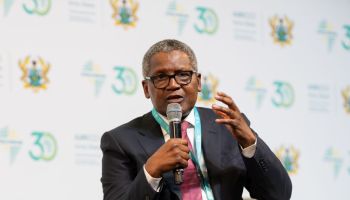Pope Francis has warned that the Catholic Church’s moral structure might “fall like a house of cards” if it doesn’t balance its divisive rules about abortion, gays and contraception with the greater need to make it a merciful, more welcoming place for all.
Six months into his papacy, Francis set out his vision for the church and his priorities as pope in a lengthy and remarkably blunt interview with La Civilta Cattolica, the Italian Jesuit magazine. It was published simultaneously Thursday in Jesuit journals in 16 countries, including America magazine in the U.S.
In the 12,000-word article, Francis expands on his ground-breaking comments over the summer about gays and acknowledges some of his own faults. He sheds light on his favorite composers, artists, authors and films (Mozart, Caravaggio, Dostoevsky and Fellini’s “La Strada”) and says he prays even while at the dentist’s office.
But his vision of what the church should be stands out, primarily because it contrasts so sharply with many of the priorities of his immediate predecessors, John Paul II and Benedict XVI. They were both intellectuals for whom doctrine was paramount, an orientation that guided the selection of a generation of bishops and cardinals around the globe.
Francis said the dogmatic and the moral teachings of the church were not all equivalent.
“The church’s pastoral ministry cannot be obsessed with the transmission of a disjointed multitude of doctrines to be imposed insistently,” Francis said. “We have to find a new balance; otherwise even the moral edifice of the church is likely to fall like a house of cards, losing the freshness and fragrance of the Gospel.”
Rather, he said, the Catholic Church must be like a “field hospital after battle,” healing the wounds of its faithful and going out to find those who have been hurt, excluded or have fallen away.
“It is useless to ask a seriously injured person if he has high cholesterol and about the level of his blood sugars!” Francis said. “You have to heal his wounds. Then we can talk about everything else.”














